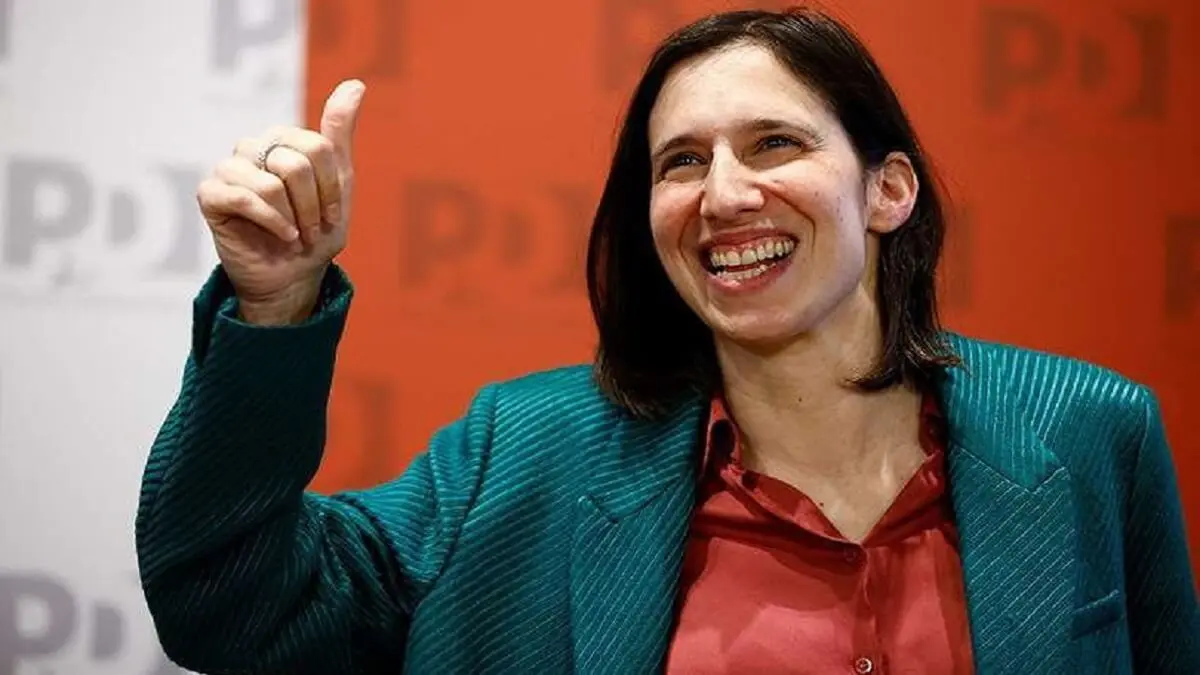Ely Schlein and the European elections

The elections for the European Parliament that have just been held have been a pleasant surprise for the centre-left. The Democratic Party (PD), with its new leader Ely Schlein at the head, has managed to be the second most voted after her centre-right rival, the Romanian and current president of the Council of Ministers Meloni. These are figures that must be scrutinised meticulously, as the European elections are something, in general, very particular: suffice it to recall that, between 1946 and 1992, all national elections were won by the now defunct Christian Democracy (DC), with one exception. Do you know what it was? The 1984 European elections, the only time the now defunct Communist Party of Italy (PCI) won against its Christian Democrat rival. In 1987, general elections (there called ‘political’) were held again and, once again, Christian Democracy won. This victory was repeated in 1992, only to be dissolved in January 1993 because of the numerous cases of corruption that plagued the party.
On the other hand, it is in the European elections that the highest abstention rate is recorded: in this case, it has gone from 54% in 2019 to 48% in 2024. This was well known to the ‘premier’ Meloni, at the head of a party, Brothers of Italy, with very little Europeanist vocation and whose base is Roman centralism. That is why she herself decided to head her party's candidacy, as did Tajani (Forza Italia), Renzi (‘With Emma Bonino for the United States of Europe’), Calenda (Azione) and Schlein herself (PD). But that does not mean that the 24.1% of votes won by the young centre-left leader are no less relevant: with this figure, she far surpasses the painful defeat of the 2022 general elections (where she only won 19% of votes) and the poor figure obtained in the European elections three years earlier, in 2019 (21.5% voted for the PD).
In a party so accustomed to defeats (since its foundation in October 2007 it has only been able to win the 2013 general elections and the 2014 European elections), and clearly divided into internal currents (one under Nicola Zingaretti, another under Guerini's control, yet another under Andrea Orlando's tutelage, and so on), overcoming the 24% barrier and falling only 4.7 points behind a Meloni who is in the best moment of her political career must be taken into account, to say the least.
The key, in Schlein's case, is to win the vote of a ‘Five Star’ Movement that is going from defeat to defeat: it was the third most voted party, but with the very poor figure of 10%. And its voters are beginning to lose hope of achieving their longed-for ‘citizenship income’, a vote-buying system that won it the March 2018 general elections, but which is now going nowhere because the European Union does not intend to accept it as a chapter of expenditure in the General State Budgets (PGE) of each member country of the European Union.
In an increasingly ageing country, with more than 16 million pensioners out of a total population of 59 million, it is very difficult for a centre-left formation to gain control of the presidency of the Council of Ministers. But it can be done: everything depends on waiting for the centre-right, which has governed the eurozone's third-largest economy since September 2022, to wear down. But it is no less certain that, with the disastrous labour reform implemented by the EU authorities, which has done nothing more than flood the countries with part-time, temporary and pitifully paid contracts, there is ‘breeding ground’ for attacking the centre-right.
And the fact is that Meloni, like Matteo Renzi (prime minister between February 2014 and December 2016), has the macroeconomic picture well under control: a low risk premium (very close to that of the times of the Draghi government), stable public debt and a reduction in the deficit. Just what the International Monetary Fund (IMF), the European Central Bank (ECB) and the European Commission are looking for. But the reality is that, in a democracy, it is not the members of the so-called ‘troika’ who vote, but the domestic economies, and the truth is that with Meloni as ‘premier’ the average Italian has gone from a per capita debt of 46,000 euros to 48,000 euros. Young people's wages are getting worse, the middle class is getting poorer, and the forced exile of the most qualified workers continues as a real internal haemorrhage (Spain and the United Kingdom alone together account for more than 900,000 workers of transalpine origin).
Because Meloni is doing the same as previous governments: raising taxes, ensuring the payment of pensions when the pensioners are the group with the highest purchasing power, and postponing the reform agenda. Almost two years after becoming premier, there is still no reform of the system for electing the president of the Council of Ministers; there is still no reform of the judiciary; and the bridge that should link peninsular Italy with Sicily (that is, both sides of the Strait of Messina) has not only not been started, but still does not even have a report on the effects of seismicity in an area, the Mediterranean Sea, that is quite prone to earthquakes.
Now that voters have taken a ‘realism bath’ and see that the ‘citizenship income’ is not going anywhere, it may be time to think that, through social policies, the centre-left is capable of giving a boost to greater stability and socio-economic equality in the country. However, Schlein cannot avoid one reality, and that is that he must face the same problem that Renzi and Meloni had in their time: the very large public debt, which leaves little room for innovation in the social sphere.
Schlein, on the other hand, is a well-educated person: he studied law with top marks at the prestigious University of Bologna, the city that saw the birth of the world's first university back in the 11th century. Which is no mean feat at the present time: his rivals are, in addition to Meloni, a Salvini without a university degree; a Renzi with a law degree from the University of Florence with a pass mark (and, moreover, lower in popularity than ever); and a Tajani with a degree in Information Science. In other words, Schlein has the ability to come up with an intelligent idea that some of his rivals would not even come close to, which, in a country fed up with the very low level of its political representatives, is an element that could strengthen his position, especially if he does not move too far to the left.
Schlein's leadership thus enters the decisive year and a half between July 2024 and February 2026. Beyond the municipal elections, during this time the distribution of government posts in the European Union will take place, as well as the elections for the government of up to nine of the country's twenty regions. So, let's take it one at a time.
In the distribution of EU government posts (President of the Commission, President of the European Council, President of the European Parliament, head of European diplomacy and those in charge of up to 27 commissions), it is not Schlein who must negotiate on behalf of the eurozone's third largest economy: that falls to the current President of the Council of Ministers (Meloni). But it is equally true that this distribution of seats will be the result of a pact between the ‘popular’ (or conservative, as one prefers), socialist and liberal families. And in the case of the Socialists, who are second in importance, Schlein, along with Spain's Pedro Sánchez, plays the most important role: bearing in mind the Social Democrats' collapse in Germany (they came third behind the Christian Democrats and the extreme right), and that in France the Socialists disappeared years ago, and also that in both Italy and Spain Socialism has become the second most voted force (Schlein with the aforementioned 24.1% of the vote, while Sánchez with 30.4%), it will be important to see the negotiating skills of Schlein, whose main weakness is that she has only known parliamentary life (except for the year and a half that she was Vice-President of the Emilia-Romagna Region, between February 2021 and October 2022): she does not know what it means to be a minister, a Vice-Minister or an Under-Secretary.
Thus, in view of her candidacy for the Presidency of the Council of Ministers in elections to be held in September 2027 at the latest, Schlein will have to compete with the centre-right for the following regions: five in the hands of her rivals (Trentino-Alto Adige, Calabria, Marche, Veneto and Sicily), and four under centre-left control (Emilia-Romagna, Tuscany, Campania and Puglia). And here Schlein faces a difficulty: in all the regions controlled by the Democratic Party, their respective leaders (Bonaccini, Giani, De Luca and Emiliano), and unlike some controlled by the centre-right, are running out their second mandate. And the electoral reality is that, although it is normal for those who govern a region to revalidate their mandate, it is also true that it is very difficult for the same party to govern the same region for three consecutive years, except in the so-called "bastions of electoral ground": the Veneto is as much a Lega region as Emilia-Romagna is a left-wing region, but in others, such as Lazio, the right has taken turns in power with the centre-left, and so on in many others.
Let's see what happens with the choice of candidates by a Schlein who, for the first time, finds herself with the ability to freely designate her electoral bets: Bersani is retired from politics; Renzi has been out of the party since September 2019 (as has Calenda); Zingaretti was a fiasco as Secretary General and is now no more than a junior MP; Orlando has made quite a political career out of his very low intellectual level (several times minister as incredible as it may seem); and Civati decided to leave the PD a long time ago, plus he is no longer any "youngster", unlike when he stood in the PD primaries in December 2013.
Let us be clear, before concluding, that Roma's Meloni is at her political best; that she completely dominates the centre-right coalition; and that, as the veteran and very popular journalist Bruno Vespa pointed out, she stands out for her enormous "resilience". But it is equally true that, unlike in February 2023 (when the PD ‘beat’ her in the elections for both the Lazio and Lombardy governments), and also in recent months (Schlein's pyrrhic victory in Sardinia led to two real thrashings in Basilicata and Umbria), the young Bolognese leader is now beginning to acquire greater relevance and must be taken more into account.
The centre-right has a good grip on the levers of power and enjoys a broad "maggioranza", but it is also nearing its third year in government and the erosion of power is an unavoidable maxim. Schlein is certainly on the rise, but she also faces an enormous difficulty: that an increasingly conservative society will be able to vote for a left-wing leader. Will it happen? Time will tell.
Pablo Martín de Santa Olalla Saludes is a lecturer at Camilo José Cela University (UCJC) and author of the book "Italia, 2018-2023. De la esperanza a la desafección" (Madrid, Líber Factory, 2023).



